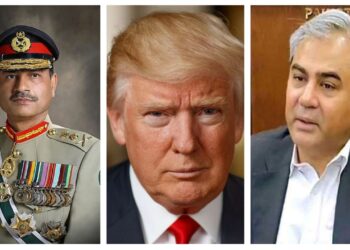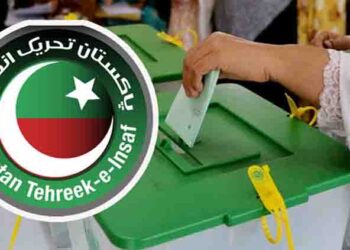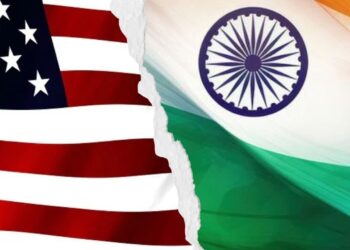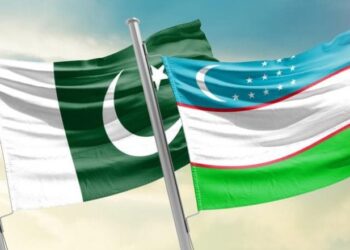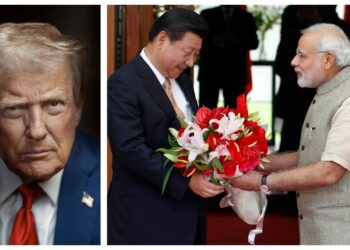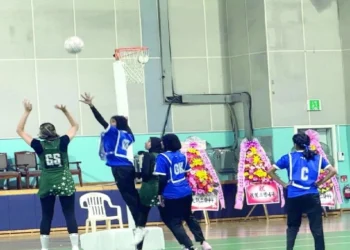MNN (Web-Desk); On the sixth anniversary of India’s controversial move to revoke Article 370 and abrogate the special status of Indian Illegally Occupied Jammu and Kashmir (IIOJK), Pakistan’s civil and military leadership came together on Tuesday to express strong condemnation of New Delhi’s illegal actions and reaffirmed full solidarity with the Kashmiri people.
The day, observed as Youm-e-Istehsal-e-Kashmir, marked six years since India, under Prime Minister Narendra Modi’s government, unilaterally changed the constitutional status of the disputed territory, splitting it into two union territories in defiance of international law and United Nations Security Council resolutions.
Prime Minister Shehbaz Sharif, in a strongly worded statement, declared that Pakistan remains firmly committed to the just resolution of the Jammu and Kashmir dispute. “We reiterate our strongest condemnation of India’s illegal and unilateral actions taken since August 5, 2019, to alter the demographic structure and political landscape of IIOJK,” he said, adding that these actions are in complete disregard of international law and the will of the Kashmiri people.
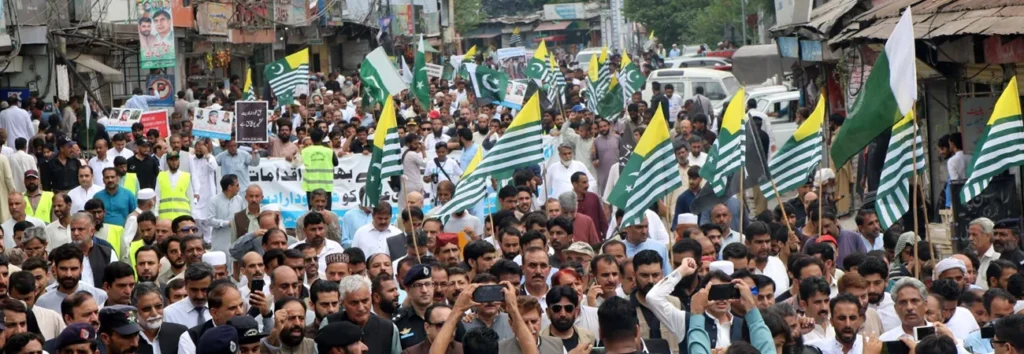
Calling the day a “sobering reminder” of India’s continued rejection of peace and human rights, Sharif said, “India’s state terrorism and brutal oppression cannot silence the voices of Kashmiri resistance.” He further denounced the imprisonment of Kashmiri leaders like Shabbir Shah, Yasin Malik, and Masarat Alam Bhatt, stating that their unjust incarceration will never weaken the Kashmiri struggle.
“The brave people of Kashmir have endured state-led oppression for over seven decades, and their resilience is a beacon for all peace-loving nations. Today, all Pakistanis salute their courage and sacrifices,” the prime minister stated.
President Asif Ali Zardari also issued a statement to mark the day, emphasizing that August 5, 2019, represents a clear violation of international norms. He said India’s unilateral move aimed to alter the disputed nature of Kashmir by bifurcating the region into union territories and implementing policies designed to change its demographic composition.
He cited several measures taken by the Indian authorities over the past six years — including the gerrymandering of electoral constituencies, issuance of domicile certificates to non-Kashmiris, changes in land ownership laws, and transferring more administrative powers to the Indian-appointed lieutenant governor — as attempts to undermine the Kashmiri people’s right to self-determination.
President Zardari called on the international community to break its silence and hold India accountable for its actions in IIOJK, insisting that durable peace in South Asia is impossible without resolving the Kashmir issue according to the aspirations of the Kashmiri people and relevant UN resolutions.
In a joint message, Chief of Army Staff General Syed Asim Munir, Chairman Joint Chiefs of Staff Committee, Chief of Naval Staff, and Chief of Air Staff declared full support of the armed forces for the Kashmiri cause. “The continued illegal occupation of IIOJK, enforced through a relentless military siege, systemic human rights violations, and demographic engineering, is a grave breach of international norms,” the statement released by the Inter-Services Public Relations (ISPR) said.
The top military leadership warned that India’s belligerent posture, coupled with its incendiary rhetoric, only fuels regional instability and prolongs the suffering of the Kashmiri people. They stressed that Pakistan’s military stands shoulder to shoulder with the people of Kashmir in their just and legitimate struggle for freedom and self-determination.
Adding to the day’s developments, Deputy Prime Minister and Foreign Minister Ishaq Dar, while addressing a large public rally in Islamabad organized to commemorate Youm-e-Istehsal, criticized reports emerging from Indian media regarding the potential restoration of Jammu’s statehood — while maintaining the union territory status for Kashmir.
“Such moves are provocative and unacceptable. They are part of India’s continued campaign to manipulate the region’s identity and deny the rights of Kashmiris,” Dar said, warning that any such decision would not change the disputed nature of the territory under international law.
He pointed out that reports of back-to-back meetings between Indian President Droupadi Murmu, PM Modi, and Home Minister Amit Shah have fueled speculation that India might soon announce the partial restoration of statehood for Jammu while keeping Kashmir under direct central rule.
Dar reiterated Pakistan’s demand that India must reverse all actions taken on August 5, 2019, end the media blackout and oppressive restrictions in IIOJK, and immediately cease all attempts to alter the region’s demographic profile.
“Pakistan will continue to extend its diplomatic, political, and moral support to our Kashmiri brothers and sisters until their right to self-determination is realized,” he stated.
He emphasized that the Kashmir issue is not an internal matter of India, but an internationally recognized dispute awaiting resolution. “No domestic legislation or court ruling in India can override the will of the Kashmiri people or the commitments made through UN Security Council resolutions,” the foreign minister added.
Concluding his address, Dar reiterated that while Pakistan believes in peaceful coexistence and dialogue, its desire for peace should never be mistaken for weakness. “Our armed forces and our people have demonstrated time and again — including during Operation Bunyan-ul-Marsoos — that we are capable of responding decisively to any form of aggression.”









